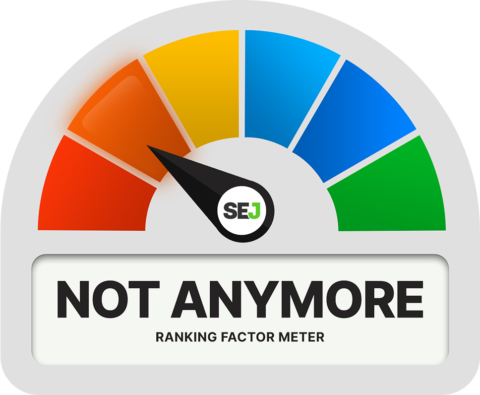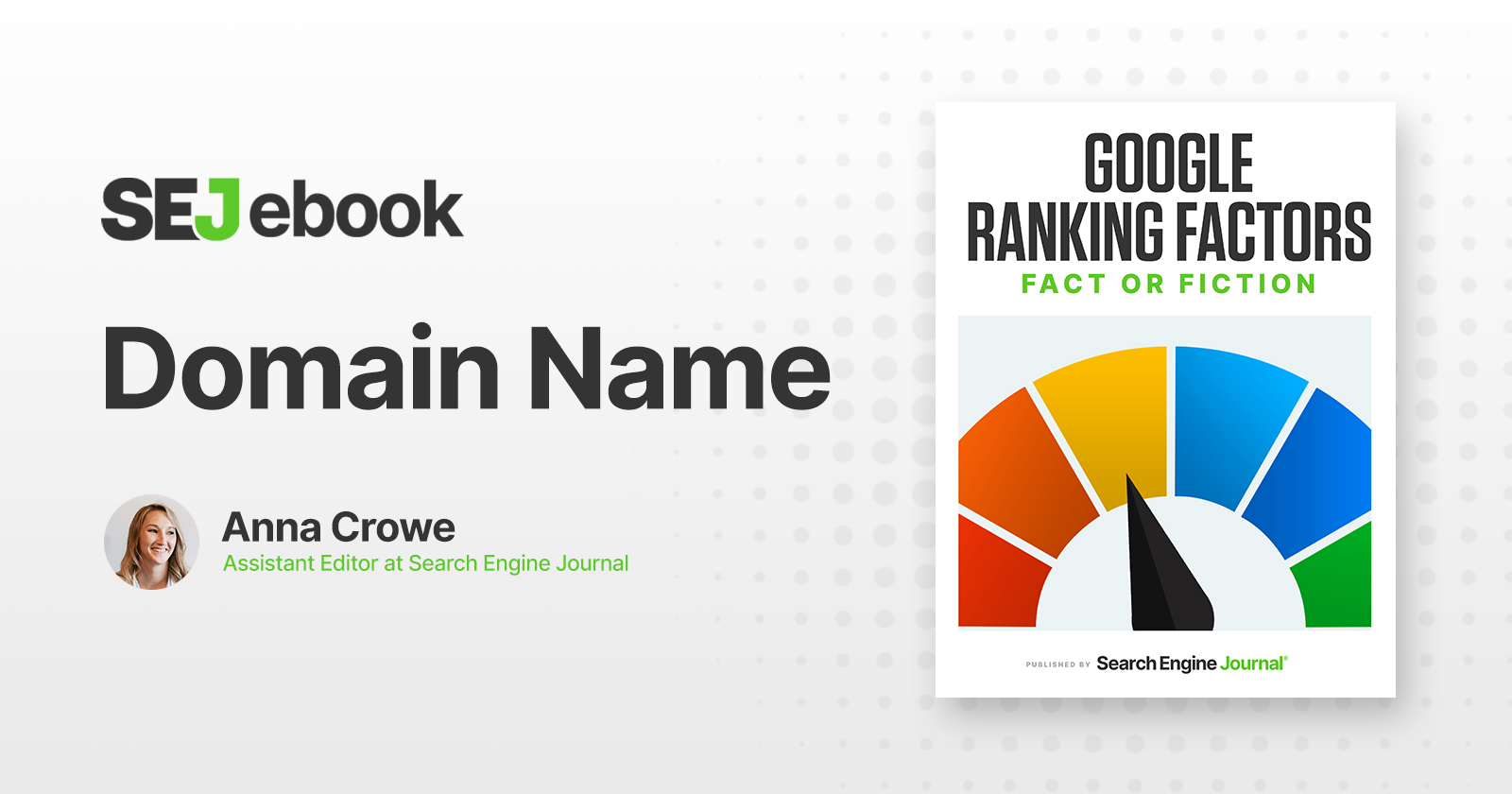Let’s just say it: Exact match domains should be buried in a garbage bag right next to people who talk on their speakerphone in public.
Remember when every domain used to look like www.caraccidentattorney.com or www.buydogcollars.com?
That’s what we’re referring to when we talk about an exact match domain (EMD).
EMDs are domain names that include the exact keyword phrases you want to rank for in the SERPs.
Luckily, on September 28, 2012, Google’s Matt Cutts confirmed exact match domains are not a ranking factor.
Now that we’ve settled that dispute, let’s analyze how the domain name impacts search results.
Advertisement
Continue Reading Below
Take a deep breath and prepare to get the real story behind the SEO industry’s false claims on exact match domain names. To avoid a future crisis of your own, keep reading.
The Claim: Domain Name as a Ranking Factor
You’ve probably heard a client or someone in SEO say something like: “Exact match domains generate instant credibility.”
“It’s the best investment you could make.”
“It gives you a competitive edge.”
It was true — back in the day. The Hotels.com domain sold for $11 million in 2003, making it one of the most expensive domain name purchases of all time.
Advertisement
Continue Reading Below
The same theory goes for keywords in your domain name. We all saw claims that having a keyword in your domain name gives you a rankings boost.
Come. On.
We hate to be a party pooper, but it’s officially time to call B.S.
Domain Name as a Ranking Factor: The Evidence
There’s a lot of chatter online about domain names and their impact on rankings.
Does Domain Name Affect Ranking?
In 2011, Bill Slawski investigated Google’s exact match domain patent and uncovered insightful nuggets of information.
He theorized that it is possible that keywords in domains work better, according to the patent.
That same year, Google’s Matt Cutts addressed concerns about domain names in a Webmaster Hangout.
Cutts stated:
“Now if you’re still on the fence, let me just give you a bit of color, that we have looked at the rankings and the weights that we give to keyword domains, and some people have complained that we’re giving a little too much weight for keywords in domains.
And so we have been thinking about adjusting that mix a little bit and sort of turning the knob down within the algorithm, so that given two different domains it wouldn’t necessarily help you as much to have a domain with a bunch of keywords in it.”
Advertisement
Continue Reading Below
So, it was obvious back in 2011 that domain names did affect rankings.
But in 2012, Cutts shared on Twitter that this will negatively affect your rankings if done incorrectly.
In today’s world, domain names do not impact Google rankings.
Google’s John Mueller said as much in 2020:
“Just because a website has a keyword in its domain name doesn’t mean that it’s more relevant than others for that keyword. In short, you don’t need to put keywords in the domain name.”
To be clear, you do not want to listen to this advice.
How Important is Exact Match Domain Name?
The fact is, exact match domain names were always gray hat feeding into the black hat world. Exact match domains are pure baloney from a ranking factors standpoint.
Advertisement
Continue Reading Below
Brian Harnish tackles everything you need to know about Google’s EMD update.
Domain Name as a Ranking Signal: Our Verdict

While there are exceptions to every rule, you want to properly evaluate your goals for the domain when it comes to your domain name.
Advertisement
Continue Reading Below
Speaking of exceptions, there is one here with our verdict: and that is when it comes to pure navigational searches.
For example, if someone searches for a domain (e.g., Facebook), they are specifically looking to navigate to that domain (eg., www.facebook.com), via a Google search (vs. typing in the URL or opening the site via a bookmark). In that case, the fact that Facebook is Facebook will help Facebook rank for that query.
Want more information on domains and SEO? Check out Roger Montti’s advice on choosing a domain name.
Featured image: Paulo Bobita
